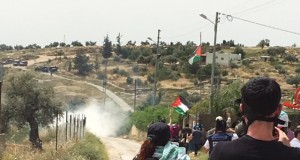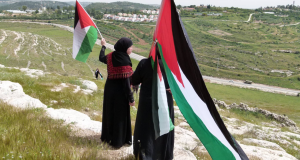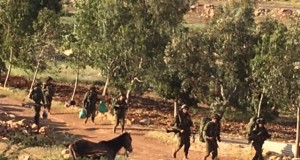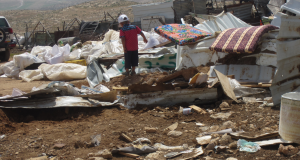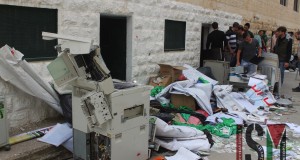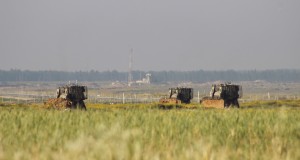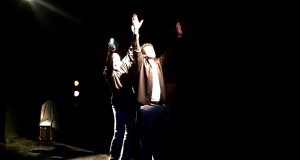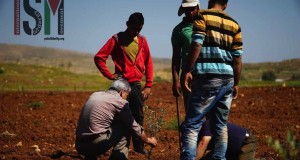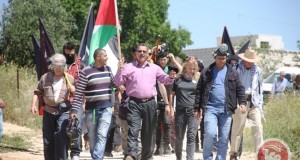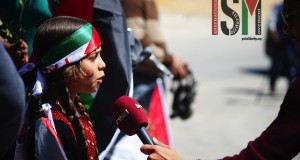9th April 2016 | International Solidarity Movement, Al-Khalil Team | Bil’in, occupied Palestine The weekly protest took place in Bil’in on Friday April 8th, as it has done every Friday for over a decade. Around 35 protesters, a mix ...
Read More »Nabi Saleh Protest Ends With Tear Gas
8th of April 2016 | International Solidarity Movement, Ramallah team | West Bank, occupied Palestine As on every Friday a group of Palestinians, supported by Israeli Peace Activists, Internationals and with an international media presence, came together in Nabi Saleh ...
Read More »IOF Military Training Exercises in the Jordan Valley
4th April 2016|International Solidarity Movement | Al-Khalil Team, occupied Palestine In the north of the Jordan Valley, and adjacent to the town of Tubass, are three agricultural communities: Yarza (with 4 families), Ibzk (13 families) and Samre (11 families). These ...
Read More »House demolitions in Um Al-Khair leaving children homeless
7th April 2016 | International Solidarity Movement, Al-Khalil Team | Hebron, occupied Palestine Wednesday the 6th of April 2016 at 6 o’clock in the morning, Israeli forces demolished 6 homes in the village of Um Al Khair in the south ...
Read More »University rooms destroyed in early morning raid by Israeli forces
5th of March 2016 | International Solidarity Movement, Ramallah team | East Jerusalem, occupied Palestine In the early hours of Tuesday, 5th April, around 3am, an armed group of Israeli soldiers stormed the campus of Al Quds university in the area of ...
Read More »Israeli military destroys agricultural lands in Gaza
3rd of March 2016 | International Solidarity Movement, al-Khalil team | Gaza Strip, occupied Palestine At around 9am on Thursday, the 31st March, four Israeli bulldozers entered the Gaza Strip at El Fakhuri. They came in order to destroy agricultural lands ...
Read More »Yes Theatre: Resisting occupation through theatre and socially engaged art practice
3rd April 2016 | International Solidarity Movement, al-Khalil team | Hebron, occupied West Bank The Yes Theatre in Al-Khalil works with dedication, for a brighter future for the Palestinians in the occupied West Bank through a diverse set of cultural activities. ...
Read More »Olive tree planting connects Palestinians in the Jordan Valley
2nd April 2016 | International Solidarity Movement, Ramallah Team | Jordan Valley, Occupied Palestine On Saturday 2nd April, Palestinians and international activists alike worked together in solidarity to plant olive trees in the town of al-Bikaa in the Jordan Valley, the town falls ...
Read More »Bil’in Land Day demonstration met with violence, long-range tear gas
2nd April 2016 | International Solidarity Movement, al-Khalil team | Bi’lin, occupied Palestine On 1st April 2016, the village of Bi’lin marked the 40th anniversary of Palestine’s Land Day during their weekly nonviolent Friday demonstration. Israeli forces attacked the peaceful ...
Read More »Peaceful tree planting met with force in Nabi Saleh
1st April 2016 | International Solidarity Movement, al-Khalil team | Nabi Salih, West Bank, Occupied Palestine On Friday 1st April, Palestinians from the town of Nabi Salih, along with international and Israeli activists, marched together in solidarity to protest the illegal Israeli ...
Read More » International Solidarity Movement Nonviolence. Justice. Freedom.
International Solidarity Movement Nonviolence. Justice. Freedom.
